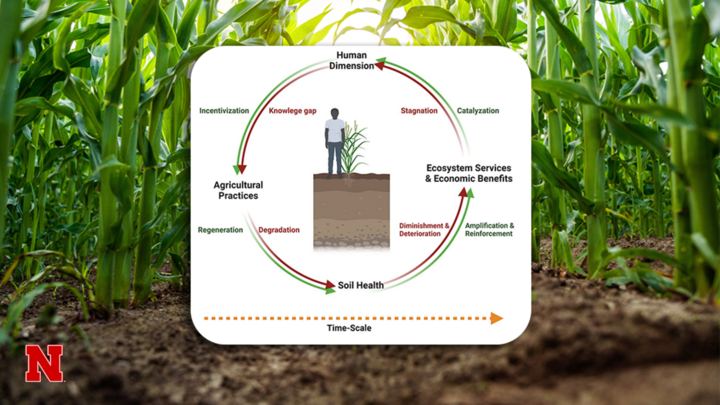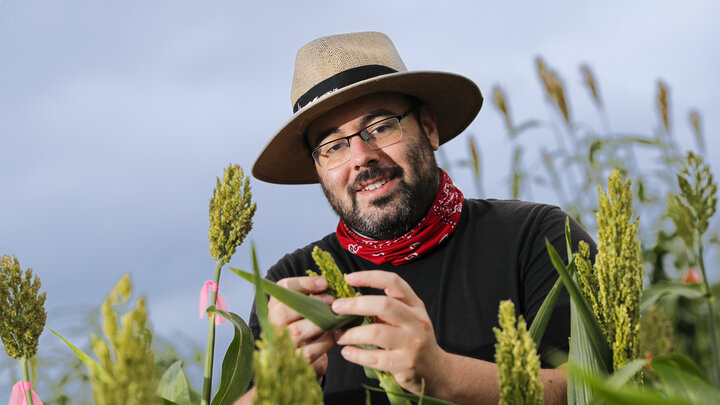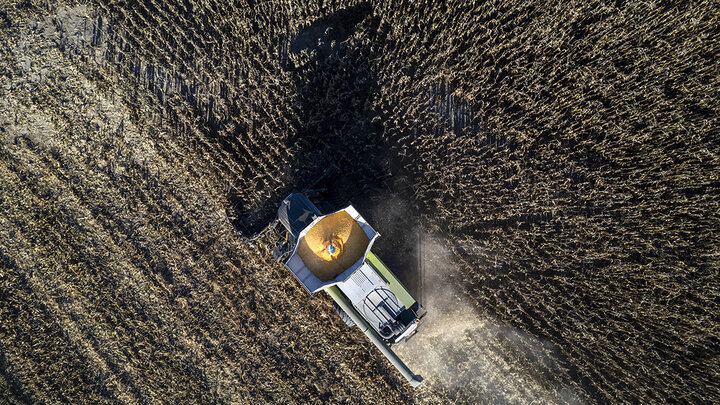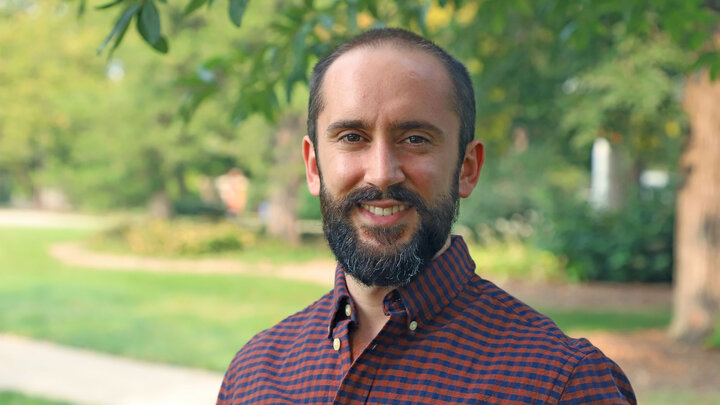This summer, Huskers Anna Newcome and Tyler Babica led research projects through the University of Nebraska–Lincoln’s Undergraduate Creative Activities and Research Experience program.
From planning and execution to troubleshooting and analysis in the lab, Newcome took ownership of an independent research project. Babica is successfully developing a first-author publication under a field-leading researcher.
These opportunities to do research with a faculty mentor were made possible through the UCARE program. Undergraduate students receive stipends of up to $2,400 to engage in intensive research or creative activity for 20 hours per week. The students’ projects span academic disciplines.
The two Department of Agronomy and Horticulture seniors were among 114 Husker undergraduates awarded stipends by the university to participate in research with a faculty mentor. Newcome's research project is titled “Integrating Genomic Traits from Wild Diploid Strawberries to Improve Decaploid Strawberry Cultivars through Polyploidization.” Babica's is titled “How Does Cattle Grazing of Corn Residues Affect the Health of Soils in the Long Term?”
“Unlike structured lab roles where tasks are assigned, UCARE gave me the chance to take ownership of an independent research project,” Newcome said. “This level of autonomy has sharpened my critical thinking and problem-solving skills and solidified my passion for scientific research.”
For Newcome, a plant biology and environmental science major from Topeka, Kansas, each day was a little different. Her research was conducted on City Campus in the Beadle Center, with equal emphasis on lab and greenhouse settings. Her lab work involved DNA isolations, performing polymerase chain reactions and running gel electrophoresis to analyze genetic material. In the greenhouse, she focused on pruning plants, collecting pollen and carrying out cross-pollinations. Intermittently, her tasks included watering the plants kept in the lab, reading and writing emails, and reviewing current research papers.
“Although I came into the UCARE program with prior lab experience from coursework and previous employment, this opportunity has been uniquely empowering,” Newcome said.
While Newcome primarily worked independently on the project, she sought guidance from her mentor, Jeff Mower, professor of agronomy and horticulture, and Huang Li, research assistant professor of biochemistry, who she said provided valuable expertise.
“Their support helped ensure the accuracy and efficiency of more complex tasks,” she said.
Newcome plans to graduate in May and continue her education in graduate school with a focus on environmental toxicology and phytoremediation.
Babica, an agronomy major from Murphys, California, was mentored by Humberto Blanco, professor of agronomy and horticulture. They evaluated how cattle grazing of corn residues affects soil physical, biological and chemical properties as indicators of soil health in a 25-year irrigated no-till corn-soybean experiment in eastern Nebraska. The research project involved analysis of 15 different soil health indicators, split between field and laboratory measurements. Soil sampling and field measurements were performed in the residue grazing experimental plots at the Eastern Nebraska Research, Extension and Education Center. All lab analysis and writing were conducted in the Soils Research Lab on East Campus in Keim Hall. Under Blanco’s guidance, Babica was responsible for analysis of samples in the laboratory, data management, data interpretation and manuscript development.
Through this project, Babica will present results at research symposiums, conferences, a peer-reviewed journal article and an extension article as a first author under Blanco’s mentorship.
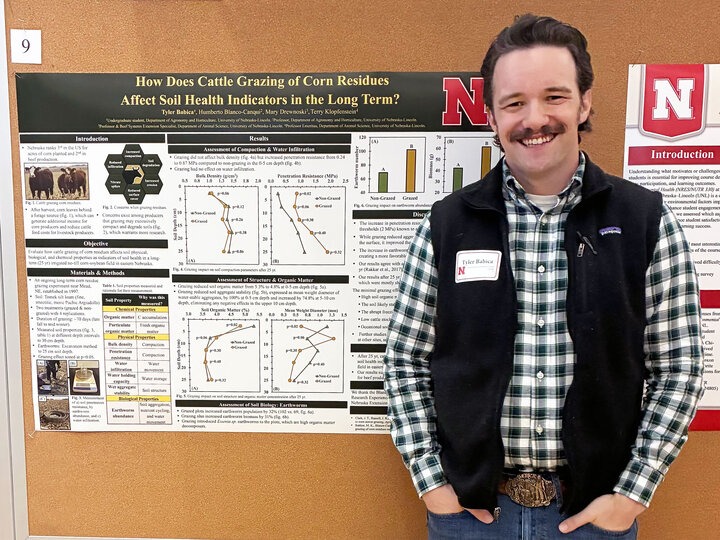
Tyler Babica, senior agronomy major, presents his UCARE research project at the Nebraska Summer Research Symposium Aug. 5 at the Nebraska Union.
“As a senior undergraduate student, developing a first-author publication under a field-leading researcher is a significant opportunity,” Babica said. “The deliverables I produce through this program will be critical to cattle and corn producers, as well as for graduate school admissions.”
Babica plans to graduate in May and continue his education with a graduate degree from Nebraska. Afterward, he would like to pursue a career in research and extension for a land grant university.
Both students showcased their research accomplishments Aug. 5 at the Nebraska Summer Research Symposium at the Nebraska Union.

